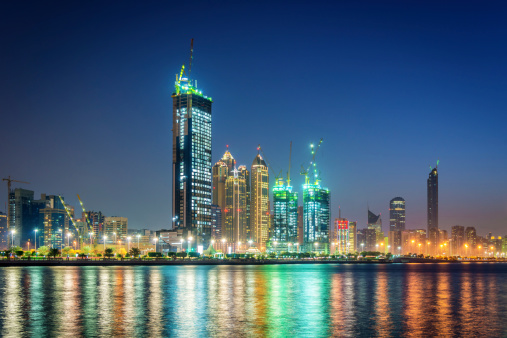Abu Dhabi’s New Financial Zone To Offer Tax-Free Benefits, Customs Exemption
The Global Marketplace Abu Dhabi could become a competitor to Dubai, currently the Gulf’s premier financial centre.

Abu Dhabi said its planned financial free zone would offer a wide range of services, from banking to fund management and commodities trading, and would aim to fill a gap in financial markets’ coverage of the global day.
In February, United Arab Emirates President Sheikh Khalifa bin Zayed al-Nahayan passed a federal decree to create the zone on Al Maryah island, close to Abu Dhabi’s downtown area.
Announcing details of the plan on Wednesday, the emirate left little doubt that its zone, to be called the Global Marketplace Abu Dhabi, could become a competitor to Dubai, currently the Gulf’s premier financial centre.
Abu Dhabi’s zone will have an independent regulator with its own board, the Financial Services Regulations Bureau, as well as two courts with a chief justice, the emirate’s Office of Government Communications said in its first public statement on the subject.
The zone, to be launched in the fourth quarter of 2013, will offer benefits similar to the Dubai International Financial Centre (DIFC), such as zero tax, easy repatriation of profits and exemption from customs duties on imports.
“Under the law there will be independent authorities that have their independent budgets and mandates under the regulations of the Global Marketplace Abu Dhabi,” the statement said.
Institutions operating in the zone will include various types of bank, trading companies, foreign exchange and commodity trading companies, prime brokerages, pension and investment funds, Islamic financial firms, companies handling stock trading, financial consultancies and others, it said.
“The free zone will bridge the gap in the global markets between 7 a.m. and 11 a.m., between Asia and Europe, due to the strategic location of the UAE,” the statement said.
Neighbouring Dubai launched the DIFC in 2004 with its own independent civil and commercial laws, its own courts and a financial exchange, Nasdaq Dubai.
Abu Dhabi is keen to diversify its economy beyond oil and although it is starting well behind Dubai as a financial centre, it has advantages such as its oil wealth – which Dubai lacks – and one of the world’s largest sovereign wealth funds.
“It is an important step in attracting foreign direct investment into Abu Dhabi…It will be interesting if it finds its niche in commodities or forex, which have prospects,” Mohammed Yasin, head of National Bank of Abu Dhabi’s brokerage unit, said of the emirate’s plan.
“We also need to see the relationship of the free zone’s regulator with other local regulators such as the central bank and the Securities and Commodities Authority, and that there is coordination between them.”
